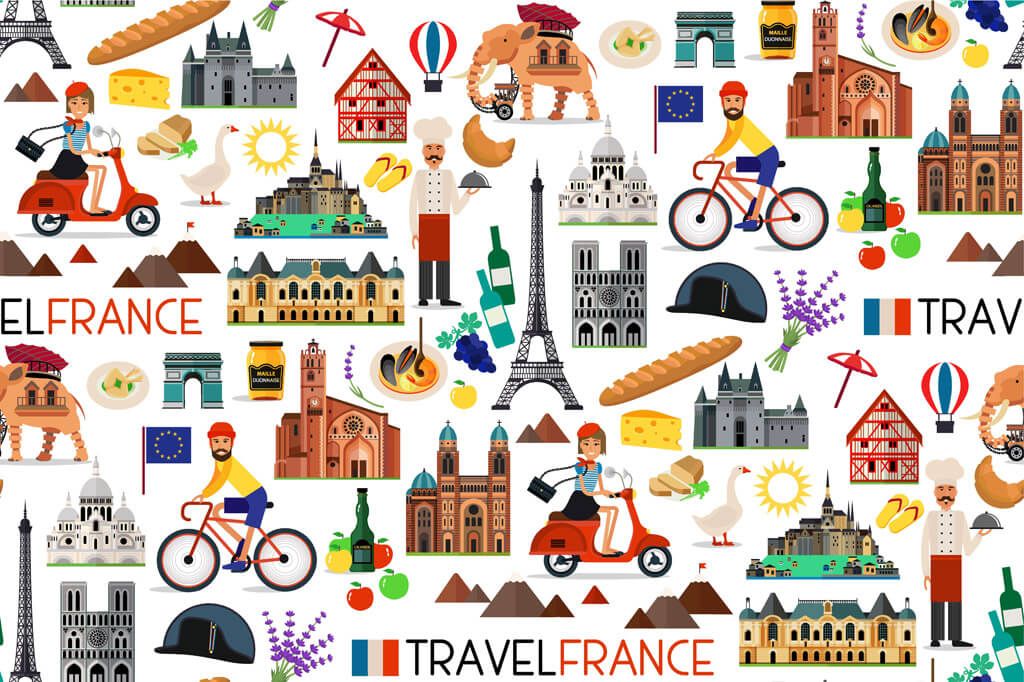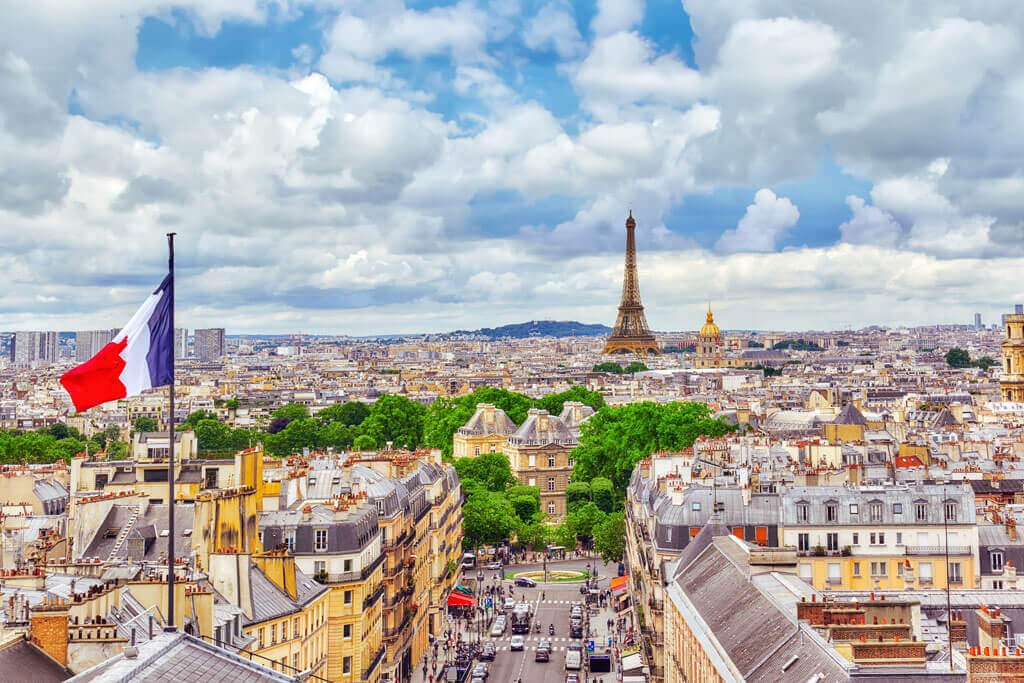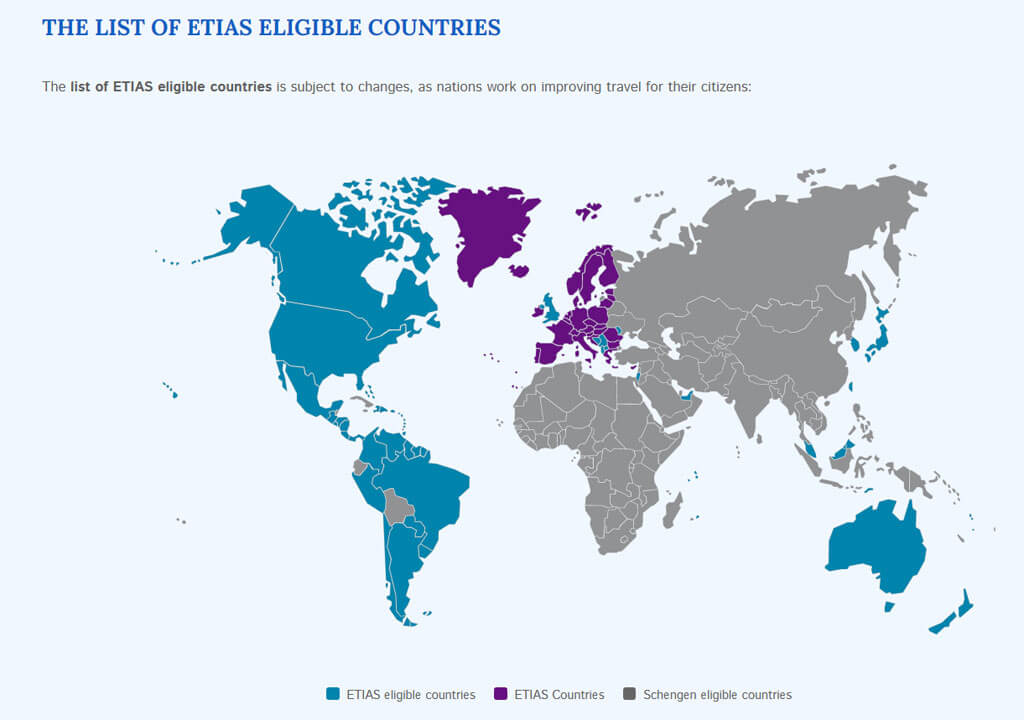France Travel Update [2022]
Can you Travel to France in 2022? In this article, we’ll cover France’s requirements for tourists and any health measures that are in place in France.
Here, you will find the latest information about international travel to France, Covid-19 testing requirements for France, vaccination requirements for visiting France, and the French Health Pass.
Content is only supplied from official information from the French Government via their official channels.
We update this post as soon as new information is available, so keep clicking for the latest updates!
Content:
- Is France Open for Tourism [2022]?
- France Entry Requirements based on Health Indicators
- France Health Pass (now France Vaccine Pass) for Tourists
- Other Restrictions during your Visit to France
- Travel to France from UK – France Vaccine Pass for UK Tourists
- Travel to France from US – France Vaccine Pass for US Tourists
- Travel to France for Private Visits (=Staying with Friends, Family)
- Where can I get a PCR test in Paris / France to return home
- France Travel 2022: ETIAS Visa Waiver for non-European Countries (UK included)

1. Is France Open for Tourism [2022]?

YES. France is open for travel. However, travel to France is currently limited due to the coronavirus pandemic, entry bans and restrictions remain in place.
In the next chapters, we have covered the current restrictions on traveling to France as a result of Covid-19, depending on your country of origin.
DID YOU KNOW? Since August 2020, SafetyWing, our trusted travel insurance policy for long and short trips (starting with a minimum of 5 days), covers COVID-19 for new policies purchased, and since April 2021, unplanned quarantine is covered, too. You can kick off your travel insurance plan with SafetyWing any time, even when already on the road. Get a quote with SafetyWing.
2. France Entry Requirements based on Health Indicators
Classification of Countries Based on Health Indicators
France has a classification of countries (green – orange – red) based on health indicators. Different arrival formalities apply depending on your country of origin (green, orange, or red).
If these indicators improve or get worse, the color may change. Therefore, we invite you to check this page regularly to follow the latest updates on the map.
12 February 2022 | Vaccinated travelers from non-European countries do not need to present a negative PCR test on arrival.
1 December 2021 | Flights to Austral Africa will resume on Saturday, 4 December 2021. However, a new category of countries’ red-scarlet’ will be created to include South Africa, Lesotho, Botswana, Zimbabwe, Moçambique, Namibia. Travelers flying from these countries will undergo a Covid test upon arrival in France, followed by isolation for seven days if the result is negative and 10 days if the result is positive.
26 November 2021 | Emergency brake to stop air travel from the Southern African region due to the variant of concern B.1.1.529. Flights between France and South Africa, Lesotho, Botswana, Zimbabwe, Moçambique, Namibia are suspended until further notice.

‘GREEN’ COUNTRIES: countries and territories in which no active circulation of the virus has been observed and no variants of concern have been identified. These are the countries of the European area, as well as Andorra, Iceland, Liechtenstein, Monaco, Norway, Saint-Martin, Switzerland, and the Vatican. In addition to these countries, there are other green countries on the map, like Argentina, Australia, New Zealand, Saudi Arabia, and Canada.
‘ORANGE’ COUNTRIES: countries in which active circulation of the virus is observed in controlled proportions, without the dissemination of worrying variants. These are all countries that are not included in the lists of “green” and “red” countries.
‘RED’ COUNTRIES: countries in which an active circulation of the virus is observed with the presence of worrying variants.
‘RED-SCARLET’ COUNTRIES: particularly active circulation of the virus and/or discovery of a variant likely to present a risk of increased transmissibility or immune escape.
Requirements to Enter France [2022]
Travelers should be aware of the following requirement: before traveling, travelers must provide contact details, including the address they will be staying at, to the French authorities via an online form. Travelers can also double-check the documents required to travel to /from France via Air France’s app TravelDoc – additional conditions may apply depending on your background or nationality.
Now that you know if your country is green, orange, or red (according to France), here’s the list of requirements to enter France.
GREEN COUNTRIES:
Vaccinated Travelers from the European Union (+Andorra, Iceland, Liechtenstein, Monaco, Norway, San Marino, Vatican, or Switzerland): there are no requirements for traveling to France. Travelers must present proof of vaccination status, and a sworn statement attesting to the absence of symptoms of covid-19 infection and contact with a confirmed case of covid-19.
Non-Vaccinated Travelers: Before leaving their home country, non-vaccinated travelers will need a negative PCR test or Antigen test carried out less than 72 hrs (carried out less than 24 hrs if travelers are coming from Cyprus, Spain, Greece, Portugal, and the Netherlands). A sworn statement attesting to the absence of symptoms of covid-19 infection and contact with a confirmed case of covid-19.Random PCR test or antigen test on arrival.
ORANGE COUNTRIES:
Vaccinated Travelers: travelers are not subject to compelling reasons to enter France. Travelers must present proof of vaccination status and a sworn statement attesting to the absence of symptoms of covid-19 infection and contact with a confirmed case of covid-19.
Non-Vaccinated Travelers: travelers will need to prove a compelling reason to visit France. Before leaving their home country, non-vaccinated travelers will need a negative PCR test carried out less than 72hours or antigen test carried out less than 48 hrs (for UK travelers, any test needs to be carried out in less than 24 hours). Random antigen test on arrival and travelers must auto-isolate for 7 days. Also, it is necessary to present a sworn statement attesting to the absence of symptoms of covid-19 infection and contact with a confirmed case of covid-19. Random PCR test or antigen test at arrival.
RED COUNTRIES:
Vaccinated Travelers: travelers are not subject to compelling reasons to enter France. Travelers must present proof of vaccination status and a sworn statement attesting to the absence of symptoms of covid-19 infection and contact with a confirmed case of covid-19.
Non-Vaccinated Travelers: travelers will need to prove a compelling reason to visit France. Before leaving their home country, non-vaccinated travelers will need a negative PCR or antigen test carried out less than 48 hrs. Non-vaccinated travelers will carry out another (mandatory) antigen test on arrival and must auto-isolate for 10 days. The respect of the quarantine will be controlled by the security forces. Also, it is necessary to present a sworn statement attesting to the absence of symptoms of covid-19 infection and contact with a confirmed case of covid-19.
RED-SCARLET COUNTRIES:
Vaccinated or Non-Vaccinated Travelers: travelers will need to prove a compelling reason to visit France. Before leaving their home country, non-vaccinated travelers will need a negative PCR test carried out less than 48 hrs or an antigen test carried out less than 24 hrs. Another (mandatory) PCR test or antigen test on arrival and travelers must auto-isolate for 10 days. The respect of the quarantine will be controlled by the security forces. Also, it is necessary to present a sworn statement attesting to the absence of symptoms of covid-19 infection and contact with a confirmed case of covid-19. Random PCR test or antigen test at arrival.
In the event of a positive test on arrival, the 10-day isolation measure will take place in a location determined by the representative of the French State in the destination department.
3. France Health Pass (now France Vaccine Pass) for Tourists
Since 21 July 2021, the use of a France Health Pass is required for citizens older than 12 for all cultural and entertainment sites with a capacity of over 50: museums, gyms, cinemas, churches, exhibition rooms, conference rooms, etc. In 2022, the France Health Pass becomes the France Vaccine Pass
What is the France Vaccine Pass?
The Vaccine Pass came into force on Monday 24 January 2022 and replaces the France Health Pass. The Pass Vaccinal will apply to all the French from the age of 16, being the 12-15 years old still subject to the France Health Pass.
Except for a few cases, the France Vaccine Pass only works with full vaccination. By ‘full vaccination’, the French Government understands 1 or 2 doses of vaccine (depending on the type of vaccine) + booster (WITHIN seven four months after the second dose). This means that only vaccinated people with the booster will be able to hold a France Vaccine Pass.
If you are fully vaccinated and have the booster, no matter when you got it after the last jab, you are good to go!
At this stage, adolescents aged 16 and 17 are exempt from the booster dose to activate their Vaccine Pass, as the campaign for the booster for the people aged 12 to 17 started on 24 January in France and it is not mandatory.

Vaccines accepted by France
These are those recognized by the European Medicines Agency (EMA): Pfizer, Moderna, AstraZeneca / Vaxzevria / Covishield (7 days after the second dose), and Johnson & Johnson (28 days after the dose).
Where is the Vaccine Pass Required?
The France Vaccine Pass is the key to enjoying all leisure activities. Also, it will be necessary for the ski lifts, Christmas Markets, and camping & Club Vacances accommodation.
The France Vaccine Pass is also compulsory for bars and restaurants. The exceptions are collective catering, take-out sale of prepared meals, hotels room service, and professional road and rail catering.
Finally, the France Vaccine Pass will be also required for domestic flights, bus, car sharing, and interregional trains (also TGV trains and intercity trains) in France.
Without proof of full vaccination + booster, nothing of this will be possible in France.
The France Vaccine Pass will also be more controlled than the France Health Pass. The fine for holding a fake France Vaccine Pass is 1000€.
14 March 2022 | The Vaccine Pass is suspended in France. The exceptions to this rule are social care institutions, residences, and retirement homes where a Pass Sanitaire will be requested.
The table below shows the places where the Pass is requested.

What to Do to Get your Vaccine Pass?
The QR code will be the same as for the France Health Pass so if you got the jabs and booster in France, the switch of passes will be done automatically.
Do European Travelers Need a France Vaccine Pass?
Nationals of certain countries have a digital Covid certificate accepted in France.
- Member States of the European Union;
- Albania;
- Andorra
- Faroe Islands;
- Iceland
- Israel
- Liechtenstein;
- North Macedonia;
- Morocco
- Monaco
- Norway
- Panama
- United Kingdom; See chapter 4 ‘France Vaccine Pass for UK Tourists’
- San Marino;
- Switzerland;
- Turkey;
- Ukraine;
- Vatican.
What to Do to Get a Vaccine Pass for Tourists
Some pharmacies in France offer this service (Attestation d’Équivalence Vaccinale). To get this certificate you must present:
- passport
- original of your (complete) Vaccination Certificate (paper version)
This Vaccination Certificate is an essential document and must include your surname, first name, date of birth as well as the date of vaccination, the vaccine used, if possible its batch number, the number of doses injected, and the country of vaccination. The price of this Attestation d’Équivalence Vaccinale cannot be higher than 36€. Click here for more information.
4. Other Restrictions during your Visit to France
20 January 2022 | the French Government announced the calendar to ease the current restrictions due to the pandemic. Until these dates, please refer to subchapters A, B, and C:
- 2 February: end of the use of mask outside. Capacity limits in sports events and cultural places will disappear.
- 16 February: discos and dancing floors will re-open. Standing concerts and eating and drinking while standing in cafés and bars will be possible again.
A. Use of Mask
14 March 2022 | Wearing a mask is no longer compulsory in most places where it is imposed today. All public and private places, from shops to classrooms, are concerned, with two exceptions: medical and medico-social establishments, and public transport.
28 February 2022 | The use of a mask inside won’t be compulsory in the places where the Vaccine Pass is requested. This new rule concerns the establishments dedicated to leisure activities, restaurants, bars, and fairs. The use of a mask inside, covering the mouth and nose, will still be compulsory in transportation and places where the Vaccine Pass is not requested.
B. Admission Conditions in Museums and Tourist Attractions
2 February 2022 | No more capacity limits in sports events, cultural places, and other tourist attractions.
Most museums and tourist attractions in France have reduced the daily number of visitors and request booking of date and time slot. Check out this list of best museums in Paris with the latest information and admission conditions per museum.
C. Other Measures
16 February 2022 | Discos and hanging floors will re-open, and it will be possible to eat on transportation, cinemas, and stadiums.
3 January 2022 | Gatherings & activities (for three weeks as from 3 January 2022)
• Capacity limits have been reintroduced for large events: 2,000 people inside, 5,000 outside;
• Standing concerts are prohibited;
• Eating and drinking while standing is prohibited in cafes and bars;
• Nightclubs cannot open to the public until after 24 January. This also applies to dancing in all establishments open to the public, such as bars and restaurants.
31 December 2021 | Access to the terminals of Paris Charles de Gaulle, Paris Orly, and Le Bourget Airports will be forbidden to people accompanying passengers.
17 December 2021 | Big gatherings in public spaces will be forbidden during the holidays. Alcohol consumption in public areas will also be prohibited.
6 December 2021 | Additional restrictions to slow down the fifth wave in France, which is already more powerful than the third wave. These are the main points to note (for travelers):
- Starting from Friday, discos and dancing floors will close for the next 4 weeks.
- For the Xmas Markets, the current restrictions will evolve but they will depend on the préfets. Places to eat and drink will be highly restricted and controlled. Ask your hotel or Tourist Information centers for the latest news.
- Limit /avoid festive gatherings, parties (public and private) where you cannot wear the mask (drinking, eating,…).

5. Travel to France from UK – France Vaccine Pass for UK Tourists
The UK is on France’s COVID-19 travel ‘orange list’.
Non-vaccinated travelers from the UK need a compelling reason for visiting France and must show a negative test be carried out in less than 24 hours. Random antigen test on arrival and travelers must auto-isolate for 7 days.
11 January 2022 | The French Government announces that vaccinated travelers coming from the UK won’t need a compelling reason to visit France. This new rule will come into force on Friday 14 January.
Non-vaccinated travelers from the UK can enter France only for compelling reasons, not for tourism.
6 January 2022 | The French government updated their list of essential reasons for travel from the UK to include transit through France for UK nationals who are resident in the other EU Member States or assimilated countries. Transit for less than 24 hours in the international zone of an airport is also permitted.
16 December 2021 | With 78,610 positive cases recorded in 24 hours in the UK, France will impose border controls with the United Kingdom “even more drastic”.
“We are going to limit the reasons for coming from the United Kingdom to France,” government spokesman Gabriel Attal announced today, 16 December. Arrivals will be limited to nationals, French residents, and their families. Anything that is tourism or business travel for people who do not have French or European nationality will be limited”.
What to Do to Get a Vaccine Pass for UK Tourists
Nationals of certain countries (the UK included) have a digital Covid certificate accepted in France. You can directly present the QR code of the NHS certificate or scan it in the TousAntiCovid – AllAntiCovid application.
6. Travel to France from US – France Vaccine Pass for US Tourists
Can I travel to France from US? Currently, the United States is on France’s COVID-19 travel ‘orange list’.
For the entry requirements for US citizens, please refer to chapter 2, Requirements to Enter France [2022], then Orange Countries.
ORANGE COUNTRIES:
Vaccinated Travelers: travelers are not subject to compelling reasons to enter France. Travelers must present proof of vaccination status and a sworn statement attesting to the absence of symptoms of covid-19 infection and contact with a confirmed case of covid-19.
Non-Vaccinated Travelers: travelers will need to prove a compelling reason to visit France. Before leaving their home country, non-vaccinated travelers will need a negative PCR test carried out less than 72hours or antigen test carried out less than 48 hrs (for UK travelers, any test needs to be carried out in less than 24 hours). Random antigen test on arrival and travelers must auto-isolate for 7 days. Also, it is necessary to present a sworn statement attesting to the absence of symptoms of covid-19 infection and contact with a confirmed case of covid-19. Random PCR test or antigen test at arrival.
France Vaccine Pass for US Citizens: Do US Travelers Need a France Vaccine Pass?
YES. And the rules are the same for tourists visiting France. It is possible to travel to France without the booster but if you don’t have the booster, you won’t have access to the Vaccine Pass.
What to Do to Get a Vaccine Pass in Case of Vaccination Abroad
Some pharmacies in France offer this service (Attestation d’Équivalence Vaccinale). To get this certificate you must present:
- passport
- original of your (complete) Vaccination Certificate (paper version)
This Vaccination Certificate is an essential document and must include your surname, first name, date of birth as well as the date of vaccination, the vaccine used, if possible its batch number, the number of doses injected, and the country of vaccination. The price of this Attestation d’Équivalence Vaccinale cannot be higher than 36€
7. Travel to France for Private Visits (=Staying with Friends, Family)
New! People who want to travel to France for private visits to friends and family where they do not have accommodation, such as a gîte, hotel, Airbnb, etc., booked. It is compulsory to fill in an attestation (certification) to enter the country. Click here for all the details.
This certification is also required for UK passport holders.
While exempt from needing a visa for trips of under three months, the certification will be required.
This certificate is NOT related to COVID-19. Tourists staying in hotels pay a taxe de séjour (tax for staying in France), and tourists staying with friends or relatives will pay this other tax.
The attestation cost is 30 euros and relates to the accommodation/per trip, so one attestation can be used for more than one person assuming your family/friends are traveling together.
The person hosting the family members/friends must apply for the attestation not less than one month before the visit commences. You can apply for the attestation here.
Please note this requirement is for all Third Country Nationals
8. Where can I get a PCR test in Paris / France to Return Home
In France, PCR tests will be fully reimbursed for vaccinated and unvaccinated people with a prescription from 15 October 2021. Otherwise, a PCR test costs around €44, compared to €22 for an Antigen test. The latter is priced slightly higher in pharmacies.
How to Find a Laboratory Test in Paris / France
To find a laboratory test, you can search here on the sante.gouv.fr site – choose the French department (it is 75 for Paris), then filter by type of test. Under ‘Modalités d’Accueil’, you will find information such as the opening hours or if you need to make an appointment.
It only takes 15 minutes to get the results for an Antigen test in France. For PCR tests, patients receive their results via SMS or email, usually within 48 hours. I always took the (PCR) tests the first hour in the morning and received the results before the lab’s closing time (personal experience based on several PCR tests taken in Paris 19).
PCR and Antigen Tests in the Airports of Paris
7 July 2021 | The Covid-19 Testing in Paris Airports for departing passengers is now paid and not covered by the French National Health Insurance. For prices and more information on rapid antigen and PCR tests, visit their website.
Only passengers with a valid flight ticket will be accepted in these test centers. Passengers will be guaranteed a result (in French and English) within 48 hrs maximum for a PCR test and within 1 to 2 hrs for an antigen test.
To do this, make an appointment on the doctolib.fr website
- Appointment Paris Charles de Gaulle Airport (CDG) – Terminal 2E – Departures (in front of gate 16d)
- Appointment Paris Orly Airport (ORY) – Terminal 3, gate 34A; Terminal 4, gate 42D
Paris Charles de Gaulle opening hours: Monday to Saturday from 7 am to 5 pm; Sunday from 7 am to 12.30 pm.
Paris Orly opening hours: Monday to Sunday from 7 am to 7 pm.
9. France Travel 2022: ETIAS Visa Waiver for non-European Countries (UK included)

One major attraction for many non-Europeans is the ability to stay in France short-term without a visa. Europe’s visa liberalization policy allows citizens of eligible countries to stay for up to 90 days using just a passport. From 2022, however, passport holders from these visa waiver states will be required to apply for an ETIAS visa waiver to enter France.
ETIAS stands for Europe Travel Information and Authorization System, and the program has been created to improve security in the area, both for locals and visitors. The system will be introduced in late 2022.
Here’s a helpful link with information on what is required for citizens from countries who are not required to obtain a Schengen visa but who, starting in 2022, must apply online and pay a small fee for the ETIAS waiver. As you can see on the map, countries like the US, UK, Canada, Australia, or New Zealand are listed as ETIAS eligible countries.
Each applicant will be requested to meet the following Europe visa waiver requirements:
- A passport with a minimum validity of 3 months from the date of arrival
- A debit or credit card to pay the ETIAS application fee
- A current email address where the approved ETIAS will be delivered
The ETIAS visa waiver is valid for three years.

